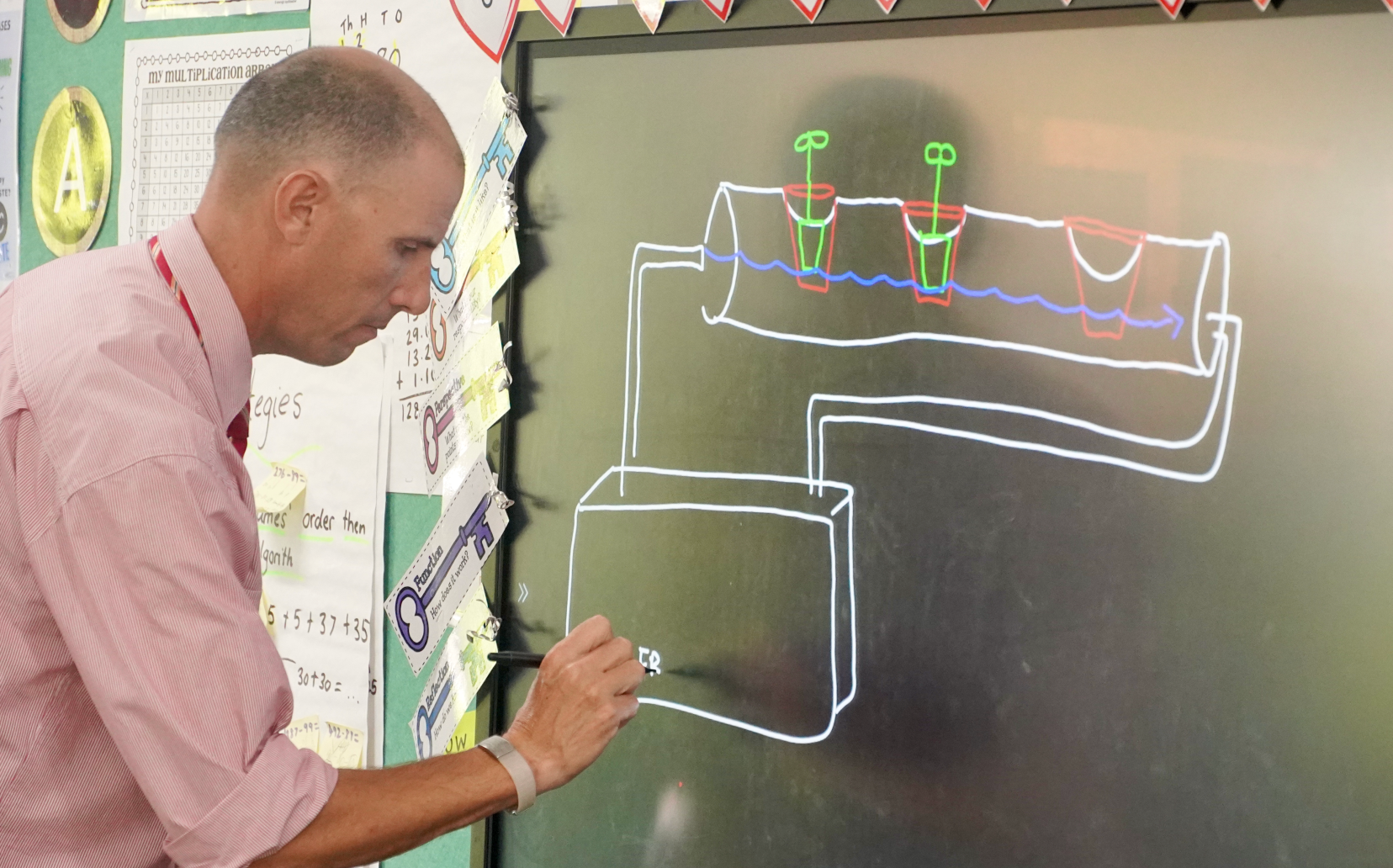Published on December 1, 2022
The absence of soil to grow our produce seems remiss when we perceive where our fruit and vegetables come from and how they have been traditionally grown. But as the world’s population continues to increase and land becomes more and more scarce, finding new and innovative ways to produce the nation’s food has become increasingly important. Hydroponic farming systems offer a solution that can help meet this challenge.

Hydroponics is growing plants in water, sand or a gravel medium without using soil. Hydroponic farms operate on a much smaller scale than traditional farms and can produce more food using 90% less water, thus offering a more sustainable farming system.
Hydroponic farming is not an entirely new concept, but it is a growing industry (pardon the pun!). In fact, the majority of leafy greens and tomatoes in Australian supermarkets are now grown using hydroponic farming systems and practices.
Year 10 Agriculture students at HVGS study hydroponics and have been hands-on researching various systems, designing their own system and constructing a working hydroponic or aquaponic (growing of fish and other aquatic animals) system to produce strawberries, tomatoes and live yabbies.
Head of Agriculture Ian Bryson, introduced students to hydroponics and aquaponics this year and has been impressed with their interest and construction of the systems.
“Students have learned both the theory behind hydroponic production and various plumbing and construction skills to make their systems,” says Ian. “It’s hands-on, collaborative and culture-building. Most importantly, it addresses students’ concerns about sustainable farming and gives students hope for innovative solutions to address global issues.”
“HVGS students are invested in sustainable agriculture practices and so hydroponics is a keen area of interest for them.”
Growing hydroponics is not without its challenges, however.
“Hydroponic growing is a more technical skill than growing plants in soil, and interestingly, there is benefit in students’ designs and constructions failing,” says Ian.
“When the students realise that they have to problem-solve to produce a successful result, they have worked together and shown significant resilience in getting the high-value crops to the point of sale. This is all part of the learning process.”
Ian and his Year 10 Agriculture students have taken the next step by introducing hydroponics to Year 3 students as part of their How we Organise Ourselves Unit of Enquiry.

Year 3 students have worked with Ian and Year 10 to set up their sustainable growing systems using clay balls and water containing nutrients from some resident yabbies. They are now using these systems to grow produce they hope to share with the School community. Watch this space!
